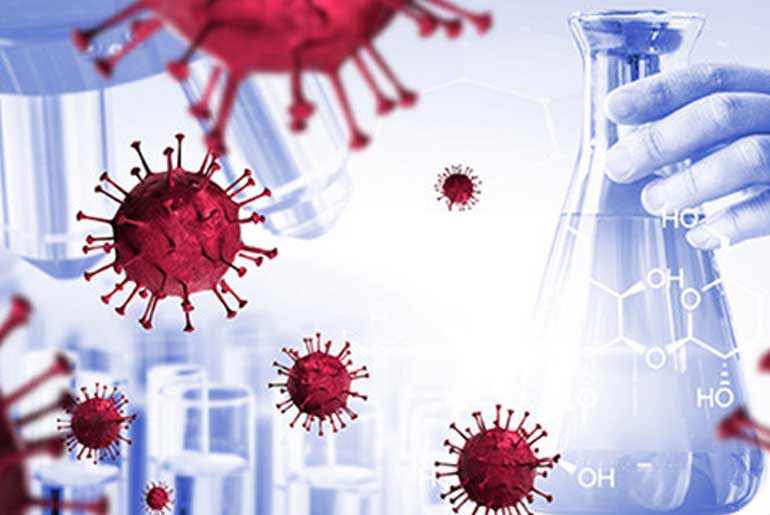The study conducted by the Institut Pasteur in collaboration with the Alternative Energies and Atomic Energy Commission (CEA) reveals that the SARS-CoV-2 virus can persist in the lungs of certain individuals for up to 18 months after the initial infection. The research, focused on lung cells in an animal model, suggests that the virus’s extended presence may be linked to a failure of innate immunity, the body’s first line of defense against pathogens.
Typically, one to two weeks after contracting COVID-19, the SARS-CoV-2 virus becomes undetectable in the upper respiratory tract. However, the study points out that in some cases, the virus establishes what is referred to as a ‘viral reservoir’ in the lungs, allowing it to persist discreetly and undetectably.
The concept of viral reservoirs, where viruses remain latent in the body after an infection, is not new and is observed in other infections, such as HIV. HIV can stay latent in certain immune cells and reactivate at any time. The researchers suggest that a similar phenomenon may occur with the SARS-CoV-2 virus, potentially contributing to the understanding of persistent post-COVID symptoms and long-term effects.
The findings, published in the journal Nature Immunology, highlight the importance of further research to comprehensively understand the dynamics of SARS-CoV-2 infection, its ability to persist in specific tissues, and the implications for the immune response.
“We observed that inflammation persisted for long periods in primates that had been infected by SARS-CoV-2. We therefore suspected that it could be due to the presence of the virus in the body,” stated Michaela Muller-Trutwin, Head of the Institut Pasteur’s HIV, Inflammation and Persistence Unit.
The study, conducted by analyzing biological samples from animal models infected with the SARS-CoV-2 virus, has yielded initial results indicating the presence of the virus in the lungs of certain individuals six to 18 months after the initial infection. Notably, during this period, the virus was undetectable in both the upper respiratory tract and blood.
Moreover, the researchers observed a notable finding related to the Omicron variant. The amount of persistent virus in the lungs was reportedly lower for the Omicron strain compared to the original SARS-CoV-2 strain. This distinction in persistence levels between different variants underscores the importance of studying the characteristics and behaviors of emerging variants to comprehend the potential implications for long-term infection dynamics.
“We were really surprised to find viruses in certain immune cells – alveolar macrophages – after such a long period and when regular PCR tests were negative,” stated Nicolas Huot, first author of the study and researcher in the Institut Pasteur’s HIV, Inflammation and Persistence Unit.
“What’s more, we cultured these viruses and were able to observe, using the tools we developed to study HIV, that they were still capable of replicating,” Huot stated.
In their effort to comprehend the role of innate immunity in managing viral reservoirs, the scientists focused on NK (natural killer) cells. NK cells are a crucial component of the innate immune system, serving as a frontline defense against pathogens. These cells are known for their ability to identify and eliminate infected or abnormal cells in the body.
By investigating the behavior and effectiveness of NK cells in the context of SARS-CoV-2 infection, the researchers aim to gain insights into how innate immunity responds to the presence of the virus and whether any deficiencies in this response contribute to the establishment and persistence of viral reservoirs, particularly in the lungs. Understanding the interplay between the virus and the innate immune system, represented by NK cells, can provide valuable information for developing strategies to enhance the body’s ability to control and clear the virus.
“The cellular response of innate immunity, which is the body’s first line of defense, has been little studied in SARS-CoV-2 infections until now,” stated Muller-Trutwin.
“Yet it has long been known that NK cells play an important role in controlling viral infections,” the researcher stated.
The study has uncovered a significant aspect of the immune response to SARS-CoV-2 infection. It reveals that in some animals, macrophages (immune cells) infected with the virus develop resistance to destruction by NK (natural killer) cells, which are part of the innate immune system. Conversely, in other cases, NK cells demonstrated an ability to adapt to the infection, becoming what is known as adaptive NK cells, and successfully destroying the resistant cells, in this instance, macrophages.
This mechanism sheds light on a potential explanation for the presence of viral reservoirs, suggesting that the virus can evade destruction by certain components of the immune system in some individuals. The ability of NK cells to adapt and overcome this resistance in certain cases highlights the dynamic and complex interactions between the virus and the immune system.
Moreover, the researchers noted a correlation between the presence of adaptive NK cells and the absence of long-term virus in some individuals. Those with lower or no long-term virus had a production of adaptive NK cells. Conversely, individuals with higher levels of the virus not only lacked adaptive NK cells but also exhibited a reduction in overall NK cell activity.
These findings contribute to our understanding of how the immune system responds to persistent viral infections and may have implications for devising strategies to enhance the immune response against SARS-CoV-2 and potentially other viruses with similar mechanisms of immune evasion.
Disclaimer:
The information contained in this article is for educational and informational purposes only and is not intended as a health advice. We would ask you to consult a qualified professional or medical expert to gain additional knowledge before you choose to consume any product or perform any exercise.








